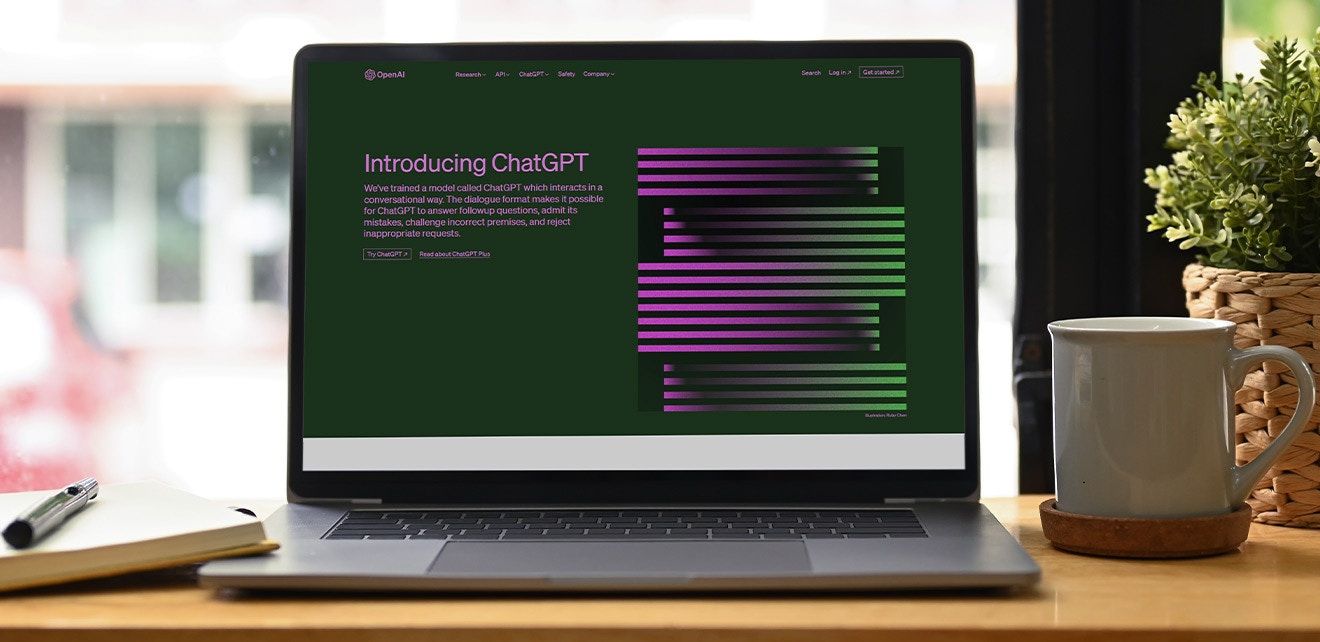Home > Blog
Read Time — 5 minutes
7 Ways Your Business Can Use ChatGPT to Drive Efficiency and Productivity

As you have undoubtedly heard, ChatGPT has taken the business world by storm. This AI-powered language model has spawned an array of connective tools promising increased business efficiency and productivity. As AI and ChatGPT are still evolving technologies, there's much to explore and discover, but already, SMBs are beginning to harness tremendous benefits by smartly utilizing these tools across a variety of departments and functions.
Managers and executives for small-to-midsize businesses can leverage ChatGPT in various ways. Here are some practical applications to explore across business functions:
1. Customer support
Your business can implement ChatGPT as a virtual assistant on your company website to handle basic customer queries and provide quick responses. This can help reduce the workload on your support team and enhance customer satisfaction.
To leverage ChatGPT for customer support, you can integrate the model into your website or messaging platforms. Your employees can then interact with the virtual assistant, acting out the roles of customers seeking answers to common queries or troubleshooting assistance. By training the language model through this process, you can ensure increasingly accurate responses. When you believe the model has enough accurate information to represent your company, you can begin to test it on a small sample of customers. Monitor the interactions and provide fallback options to live agents when necessary, ensuring a seamless customer experience.
2. Market research
ChatGPT can assist you in gathering market insights and competitive intelligence. It can scour the internet for relevant information and summarize findings to help with your marketing campaigns.
Your business can integrate the ChatGPT model into your market analysis process and provide it with relevant queries and research topics. By training the model on industry-specific data and consumer insights, ChatGPT can help you gather information from various sources, analyze trends, and identify competitors. It can summarize market reports, customer feedback, and online discussions, which can help you identify emerging opportunities and potential threats.
3. Lead generation
Use ChatGPT to engage website visitors, qualify leads, and gather prospect information, including demographics. Through interactive conversations, your business can identify potential customers and direct them to appropriate sales channels.
To employ ChatGPT for lead generation, you can integrate the model into your website or landing pages. The software’s virtual assistant will gather relevant information, qualify leads, and identify potential customers. By using prompts tailored to your process and training the model on data related to your ideal customer profiles, you can target interactions for a high probability of conversions to sales.
4. Content creation
ChatGPT can be a valuable tool for generating content including article outlines, headlines, blog posts, social media updates, email newsletters, and product descriptions. It can assist you in creating content faster and more efficiently, freeing up time for other tasks.
To leverage the tool’s content creation capabilities, sign up for an API or platform that provides access to ChatGPT. Outline the content goals and topics you want help with, input relevant prompts and questions, and it will generate content. From there, you can edit the content and blend it with human creativity and your brand’s voice before publishing.
5. Project management
ChatGPT can be used as an assistant to schedule tasks, set reminders, and provide updates on project progress. The technology can help keep everyone on your team organized and informed.
You can integrate the model into your collaboration platforms or communication channels. Team members can interact with the virtual assistant to schedule tasks, set reminders, and receive updates on project progress. ChatGPT can also help with meeting scheduling by integrating with calendars and appointment booking systems. By training the model on project-related data and providing it with access to relevant project documents, the language model can efficiently help with organizing and tracking tasks.
6. Data analysis
ChatGPT can function as a data analytics specialist by processing and summarizing large datasets, providing insights, and generating reports. This can be particularly useful if your business does not have dedicated data analysis professionals.
You can integrate the model into your analytics tools or data processing workflows. By training it on relevant datasets and queries, ChatGPT can summarize and interpret large volumes of data. It can provide insights, generate reports, and help identify patterns and trends within the data.
Be careful that you don’t give ChatGPT any data that needs to remain secret, however. It has no concept of keeping things confidential and can’t sign any NDAs.
7. Employee onboarding, training, and development
Use ChatGPT as part of your onboarding process to provide new employees with essential information about company policies, procedures, and culture.
By training the model on relevant company information, policies, and best practices, the AI-powered learning model can guide your new hires through onboarding processes. ChatGPT can create personalized interactive training modules and quizzes for employee development, deliver them on a timed schedule, and even provide real-time feedback and help to foster continuous learning.
From streamlining your customer support to enhancing your content creation, project management, lead generation, employee onboarding, data analysis, and market research, ChatGPT offers a versatile toolkit for optimizing many of your business functions. By leveraging the power of AI, your business can unlock new opportunities and stay competitive in today's dynamic market.
Enjoyed learning more about ChatGPT? Check out these other articles:
- How Businesses Can Use ChatGPT
- An Interview with ChatGPT on the Future of ERP, Business Software, AI, and Itself
- Understanding the Benefits of Digital Transformation
.



